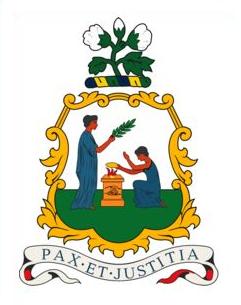

SAINT VINCENT AND
THE GRENADINES
• Official name: Saint Vincent and the Grenadines
• Location: Caribbean
• International organisations: African, Caribbean and Pacific Group of States, Commonwealth of Nations,
Organisation of American States, United Nations, World Trade Organisation.
• Borders: None
• Coastline: Atlantic Ocean, Caribbean Sea
• Land area: 389 Km2
• Population: 120,000
• Annual GDP (PPP) per capita: US$18,100 (2009 CIA estimate). World ranking: 52
• Ethnicity: About two-thirds of the population is of Black African descent, while most of the rest is of
mixed African, European and Indian descent. There are small Indian, Amerindian and European minorities.
• Languages: English is the official language and is generally understood. Most of the
population speaks a French creole.
• Religion: The great majority of the population are Christians (Protestant 85%, Catholic 15%). There is a small
Hindu minority.
• Form of government: Constitutional monarchy and parliamentary democracy. St Vincent and the Grenadines is
divided into six parishes.
• Capital: Kingstown
• Constitution: The
Constitution of St Vincent and the Grenadines came into effect on 27 October 1979. A referendum to
approve a new constitution was defeated in 2009.
• Head of state: Queen Elizabeth II, Queen of St Vincent and the Grenadines. The Queen came to the British
throne on 6 February 1952, and has held the title Queen of St Vincent and the Grenadines since 27 October 1979.
The Queen's functions in St Vincent and the Grenadines are excercised by a Governor-General, appointed by the
Queen on the advice of the Prime Minister. The current Governor-General,
Sir Frederick Ballantyne, took office on 2
September 2002.
• Head of government: The Prime Minister, appointed by the Governor-General. The Prime Minister is the
leader of the largest party in the legislature and is accountable to it.
• Legislature: St Vincent and the Grenadines has a unicameral legislature, the House of Assembly. The House of
Assembly has 21 members, 15 elected for five-year terms from single-member constituencies and six appointed
members. The legislature has no website.
• Electoral authority: The Electoral and Boundaries Commission conducts national elections. The Commission has no website.
• Freedom House 2009 rating: Political Rights 2, Civil Liberties 1 (It is not clear from Freedom House's 2009 report on
Saint Vincent and the Grenadines (see below) why it is not given a 1 for political rights.)

Political history
St Vincent was discovered by Christopher Columbus in 1498 and claimed for Spain, but the Spanish did not
settle the island and in 1763 it was occupied by the British. It was captured by the French in 1779, but retaken in 1783.
In 1833 it became part of the British colony of the Windward Islands. Constitutional development began after
World War II, and internal self-government was granted in 1956. The islands became part of the Federation of the
West Indies in 1958, but when the federation broke up in 1962 it resumed its path towards independence. It
became a self-governing Associated State in 1969 and fully independent in October 1979.
Politics in St Vincent and the Grenadines are dominated by the moderately social democratic Unity Labour
Party and the conservative New Democratic Party. Under Milton Cato Labour was in power from independence until
1984, when it was defeated by the NDP under James Mitchell. The 1998 general election was bitterly disputed, but the
NDP eventually retained power. In March 2001 the ULP returned to power under
Ralph Gonsalves. Labour was comfortably re-elected in 2005.
Freedom House's 2009
report on St Vincent and the Grenadines
says: "Saint Vincent and the Grenadines is an electoral democracy... The December 2005 elections were considered free and
fair by international observers... Saint Vincent and the Grenadines was ranked 28 out of 180 countries surveyed in
Transparency International's 2008 Corruption Perceptions Index, making it one of the best performers in the region...
The press is independent... There is constitutional protection for freedom of assembly and association...
The judicial system is independent."
Updated January 2010
|

